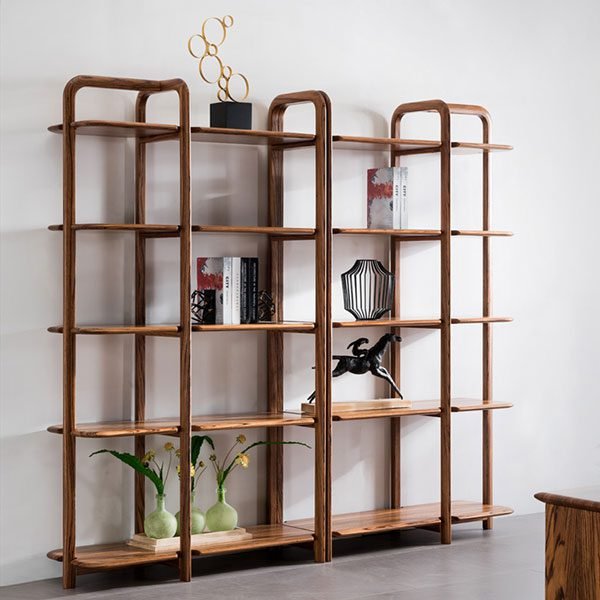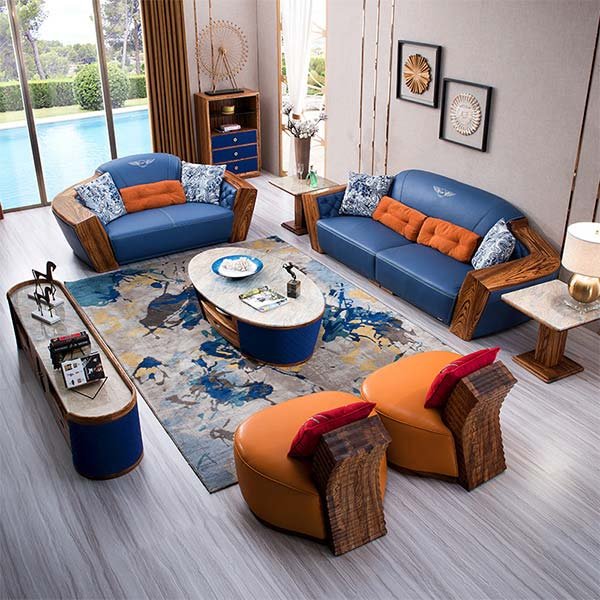Crafting quality dining room furniture for your home, one piece at a time.
Quality Control Processes in Dining Room Furniture Factories
Quality control is a crucial aspect of the manufacturing process in dining room furniture factories. Ensuring consistent quality in every piece of furniture that is produced is essential to maintaining customer satisfaction and reputation in the industry. From the selection of materials to the final inspection of the finished product, every step in the manufacturing process is carefully monitored to meet the highest standards of quality.
One of the first steps in ensuring consistent quality in dining room furniture factories is the selection of materials. High-quality materials are essential for producing durable and long-lasting furniture pieces. Manufacturers carefully source materials from reputable suppliers to ensure that they meet the required standards. Wood, metal, fabric, and other materials are inspected for defects and imperfections before they are used in the manufacturing process. This initial quality control step helps to prevent issues with the finished product and ensures that only the best materials are used in production.
Once the materials have been selected, they are carefully processed and assembled to create the final product. Skilled craftsmen and technicians work diligently to ensure that each piece of furniture is made to the highest standards. Precision and attention to detail are key factors in the manufacturing process, as even the smallest imperfection can affect the overall quality of the finished product. Quality control checks are performed at every stage of production to identify any issues and address them before they become larger problems.
In addition to the manufacturing process, dining room furniture factories also implement strict quality control measures during the finishing and assembly stages. Finishing techniques such as staining, painting, and polishing are carefully monitored to ensure that the final product meets the desired aesthetic standards. Any imperfections or inconsistencies in the finish are addressed promptly to maintain the overall quality of the furniture piece. Assembly processes are also closely monitored to ensure that each component is properly fitted and secured, preventing any issues with the structural integrity of the furniture.
Once the furniture pieces have been assembled and finished, they undergo a final inspection to ensure that they meet the required quality standards. Skilled inspectors carefully examine each piece for defects, imperfections, and inconsistencies. Any issues that are identified are addressed before the furniture is packaged and shipped to customers. This final quality control step helps to ensure that only the highest quality furniture pieces are delivered to consumers.
In conclusion, dining room furniture factories go to great lengths to ensure consistent quality in every piece of furniture that is produced. From the selection of materials to the final inspection of the finished product, every step in the manufacturing process is carefully monitored to meet the highest standards of quality. By implementing strict quality control measures at every stage of production, manufacturers can maintain customer satisfaction and reputation in the industry. Quality control is a critical aspect of the manufacturing process in dining room furniture factories, and it is essential for producing durable, long-lasting, and aesthetically pleasing furniture pieces.
Importance of Skilled Craftsmanship in Maintaining Consistent Quality
In the world of furniture manufacturing, quality is paramount. Customers expect their furniture to be well-made, durable, and aesthetically pleasing. This is especially true when it comes to dining room furniture, as it is often the focal point of a home and a gathering place for family and friends. To ensure consistent quality, dining room furniture factories rely on skilled craftsmanship.
Skilled craftsmanship is essential in maintaining consistent quality in dining room furniture production. Craftsmen who are highly trained and experienced are able to produce furniture that meets the highest standards of quality. They have the knowledge and expertise to work with a variety of materials, from wood to metal to glass, and to create pieces that are not only beautiful but also functional and long-lasting.
One of the key ways in which skilled craftsmanship ensures consistent quality is through attention to detail. Craftsmen who take pride in their work pay close attention to every aspect of the furniture they are producing, from the joinery to the finish. They know how to work with precision and care, ensuring that each piece is made to exacting standards.
Another important aspect of skilled craftsmanship in maintaining consistent quality is the ability to troubleshoot and problem-solve. In the manufacturing process, issues can arise that require quick thinking and creative solutions. Skilled craftsmen are able to identify problems and come up with effective solutions, ensuring that the quality of the furniture is not compromised.
Furthermore, skilled craftsmen are able to work efficiently and effectively, producing high-quality furniture in a timely manner. They have the experience and expertise to work quickly without sacrificing quality, ensuring that production deadlines are met and customers receive their furniture on time.
In addition to skilled craftsmanship, dining room furniture factories also rely on quality materials and modern technology to ensure consistent quality. High-quality materials, such as solid wood and durable finishes, are essential for producing furniture that is built to last. Modern technology, such as computer-aided design and manufacturing processes, helps to streamline production and ensure precision and accuracy in every piece of furniture.
By combining skilled craftsmanship with quality materials and modern technology, dining room furniture factories are able to maintain consistent quality in their products. Customers can trust that they are purchasing furniture that is well-made, durable, and beautiful, and that will stand the test of time.
In conclusion, skilled craftsmanship plays a crucial role in maintaining consistent quality in dining room furniture production. Craftsmen who are highly trained and experienced are able to produce furniture that meets the highest standards of quality, paying attention to detail, troubleshooting and problem-solving, and working efficiently and effectively. By combining skilled craftsmanship with quality materials and modern technology, dining room furniture factories are able to produce furniture that is not only beautiful but also durable and long-lasting. Customers can trust that they are purchasing furniture of the highest quality when they choose pieces crafted by skilled craftsmen.
Utilization of High-Quality Materials in Dining Room Furniture Production
Dining room furniture is an essential part of any home, providing both functionality and aesthetic appeal. When it comes to manufacturing dining room furniture, ensuring consistent quality is crucial to meet customer expectations and maintain a reputable brand image. One of the key factors that contribute to the quality of dining room furniture is the utilization of high-quality materials in the production process.
High-quality materials play a significant role in determining the durability, aesthetics, and overall quality of dining room furniture. Furniture factories that prioritize the use of premium materials are more likely to produce products that are long-lasting, visually appealing, and resistant to wear and tear. By using high-quality materials, manufacturers can create dining room furniture that not only looks good but also performs well over time.
One of the most commonly used materials in dining room furniture production is wood. Wood is a versatile material that can be crafted into various shapes and designs, making it ideal for creating different types of furniture pieces such as dining tables, chairs, and cabinets. However, not all wood is created equal, and the quality of the wood used can significantly impact the final product.
To ensure consistent quality, dining room furniture factories carefully select the type of wood they use in their production process. High-quality woods such as oak, maple, cherry, and walnut are preferred for their durability, strength, and natural beauty. These woods are less prone to warping, cracking, or splitting, ensuring that the furniture remains in good condition for years to come.
In addition to wood, other materials such as metal, glass, and upholstery fabrics are also used in dining room furniture production. Just like wood, the quality of these materials can affect the overall quality of the furniture. For example, using high-quality metal hardware for table legs or cabinet handles can enhance the durability and functionality of the furniture. Similarly, using premium upholstery fabrics can improve the comfort and visual appeal of dining chairs.
By utilizing high-quality materials in the production process, dining room furniture factories can ensure that their products meet the highest standards of quality and craftsmanship. Customers who purchase furniture made from premium materials are more likely to be satisfied with their purchase and enjoy their furniture for many years to come.
Furthermore, using high-quality materials can also help furniture factories differentiate themselves from competitors and build a strong brand reputation. Customers are willing to pay a premium for furniture that is made from superior materials, as they value the durability, aesthetics, and overall quality of the product. By consistently delivering high-quality furniture, factories can attract repeat customers and build a loyal customer base.
In conclusion, the utilization of high-quality materials is essential for ensuring consistent quality in dining room furniture production. By carefully selecting premium materials such as wood, metal, glass, and upholstery fabrics, furniture factories can create products that are durable, visually appealing, and functional. Investing in high-quality materials not only benefits customers but also helps factories build a strong brand reputation and maintain a competitive edge in the market.
Conclusion
Dining room furniture factories ensure consistent quality through rigorous quality control processes, skilled craftsmanship, use of high-quality materials, and adherence to strict production standards. These factors help to maintain the reputation of the brand and ensure customer satisfaction with every piece of furniture produced.



